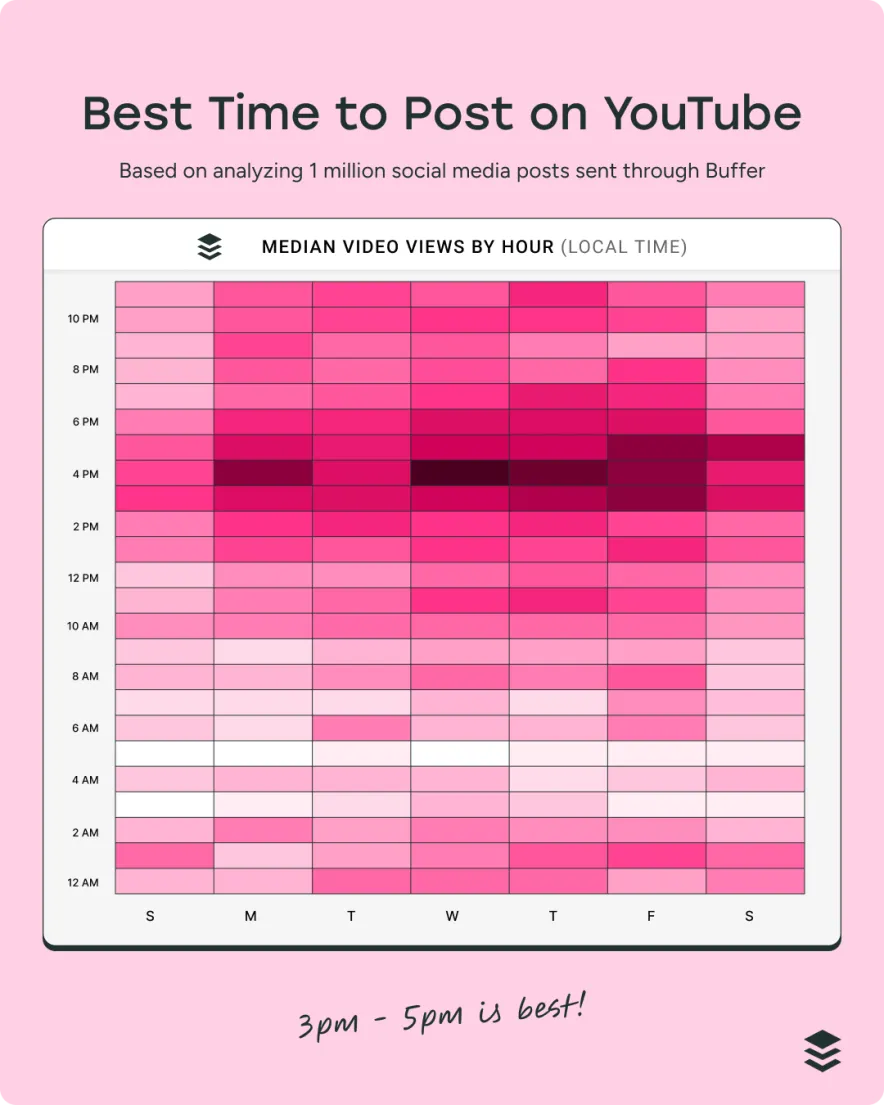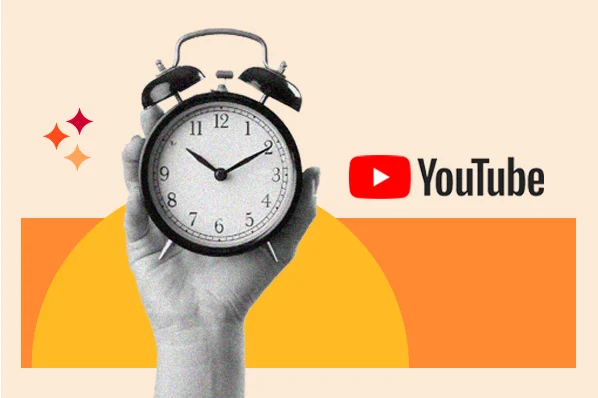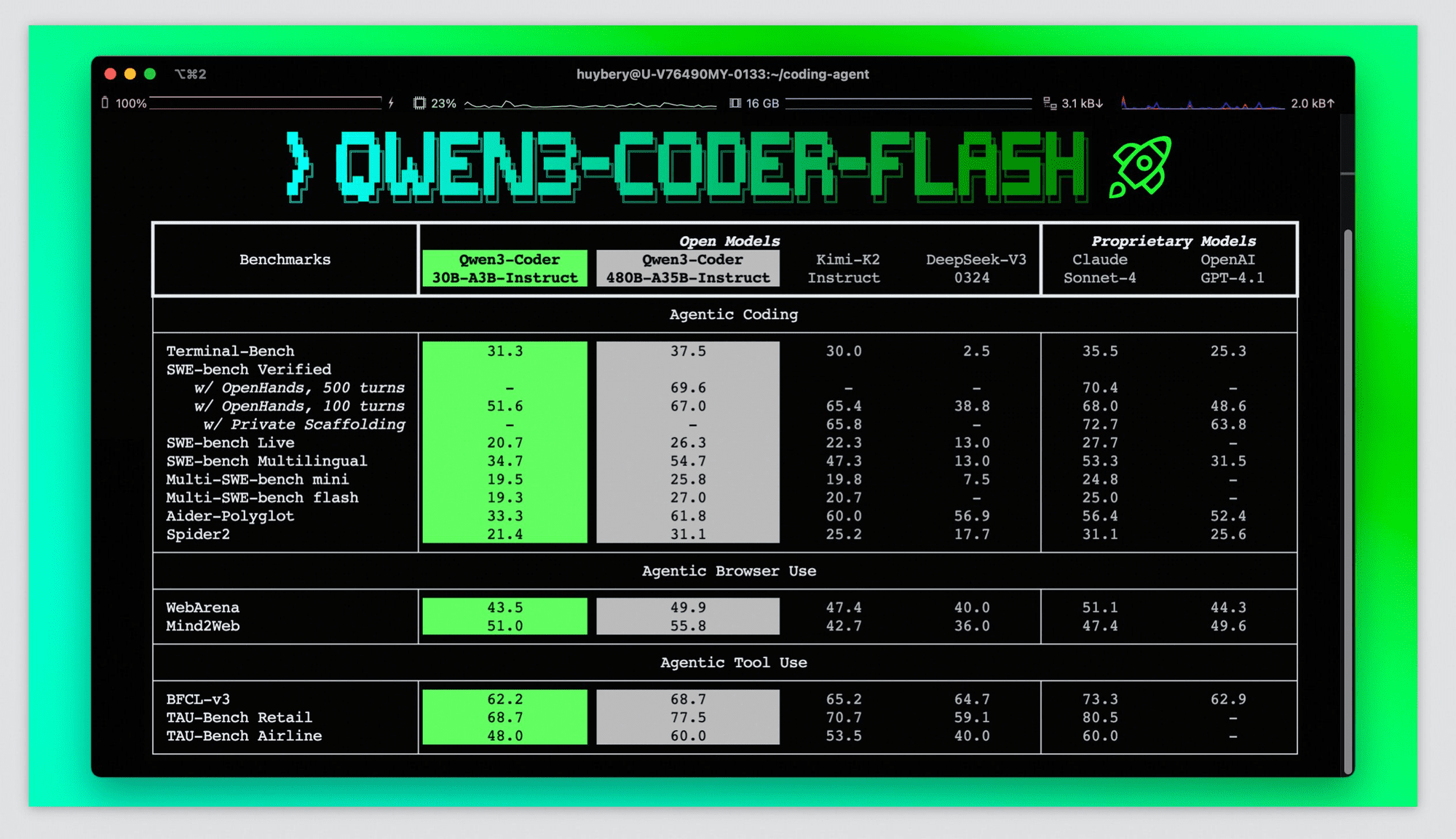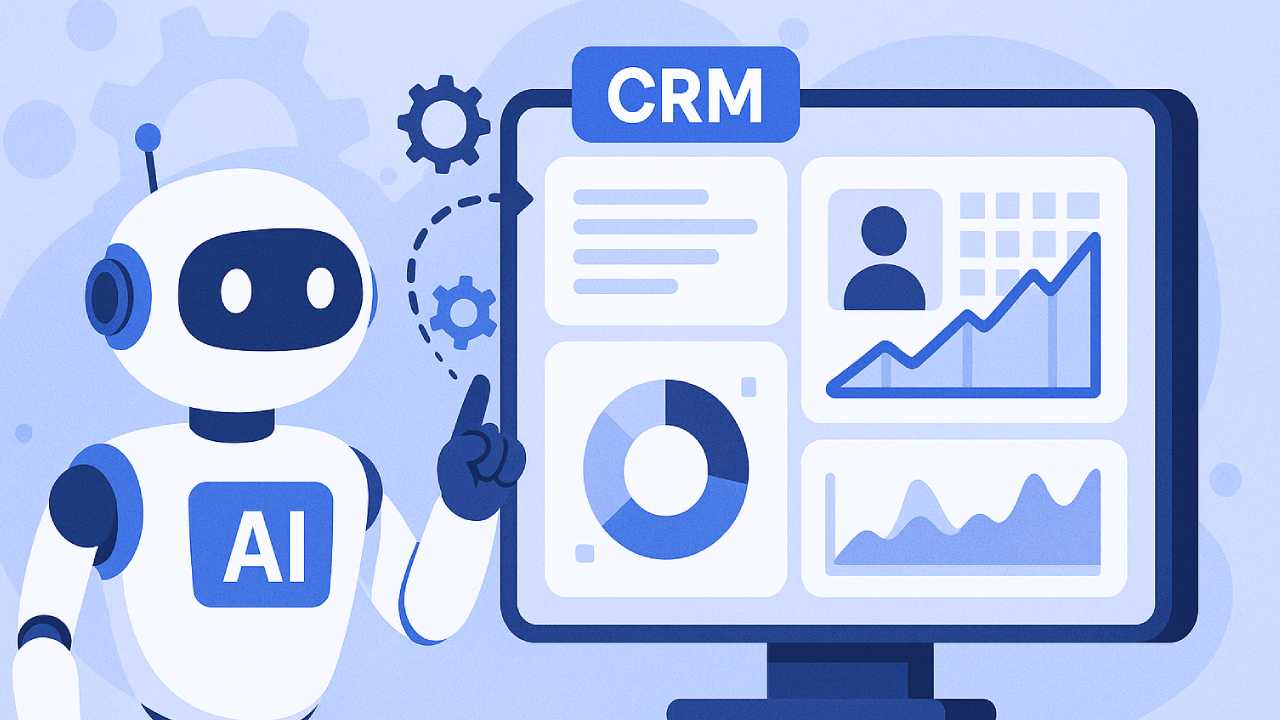Determining the optimal time to publish content is crucial for maximizing reach and engagement on YouTube. With over 2.7 billion monthly active users as of March 2025, YouTube stands as a dominant social media platform and the second-largest search engine globally. Leveraging it effectively requires understanding when your target audience is most active. While general guidelines exist, the ideal posting time often depends on specific channel factors like audience demographics, content niche, and viewer time zones. This guide synthesizes data from various research sources and outlines practical steps to identify the best time to post on YouTube for your specific channel, helping you gain more views and traction.
Understanding Why Posting Time Matters on YouTube
Publishing your video when your audience is most likely to be online provides an immediate boost in viewership. This initial engagement signals to the YouTube algorithm that your content is relevant and engaging, potentially increasing its visibility in search results, suggested videos, and subscriber feeds. Posting during off-peak hours can result in lower initial views, hindering the video’s momentum and overall reach. Therefore, strategic timing is a key component of a successful YouTube content strategy.
General Best Times to Post on YouTube: Insights from Research
Multiple studies have analyzed YouTube data to identify peak viewership periods. While findings vary slightly, clear patterns emerge. Here’s a synthesis of recommendations from sources like Buffer, Social Pilot, WordStream, and Influencer Marketing Hub:
- Weekdays (Monday – Friday): The most consistently recommended window is late afternoon, generally between 2 PM and 5 PM in the viewer’s local time (or EST, depending on the study). This aligns with periods after school or work for many demographics. Wednesday and Thursday afternoons, particularly around 4 PM, are often highlighted as strong contenders.
- Weekends (Saturday – Sunday): Viewership patterns shift on weekends. The prime times tend to be earlier in the day, typically between 9 AM and 12 PM local time. Some studies also indicate secondary peaks in the late afternoon (around 3 PM – 5 PM).
 Infographic detailing the best times to post on YouTube each day based on Buffer's research findings
Infographic detailing the best times to post on YouTube each day based on Buffer's research findings
It’s crucial to remember these are general guidelines. The specific peak times can vary based on the audience’s age, location, and lifestyle. For instance, content aimed at professionals might perform better during lunch breaks or evenings, while content for students could peak later in the afternoon.
 Visual guide illustrating recommended YouTube upload schedules for weekdays and weekends
Visual guide illustrating recommended YouTube upload schedules for weekdays and weekends
Best Time to Post YouTube Shorts for Virality
YouTube Shorts, vertical videos up to 60 seconds long, have their own viewing dynamics, often consumed during short breaks or while browsing on mobile. Research suggests the optimal times for posting Shorts (often cited in EST) are generally:
- Midday: 11:00 AM to 3:00 PM EST
- Evening: 7:00 PM to 10:00 PM EST
Data indicates that Monday and Tuesday might be particularly effective days within these windows. Wednesdays, Fridays, and Saturdays are also frequently cited as strong days for Shorts engagement (views, likes, comments).
Key benefits of using YouTube Shorts include:
- Increased discoverability and potential for high view counts due to the dedicated Shorts shelf and user preference for quick content.
- Monetization opportunities similar to regular videos.
- Higher engagement rates due to the short format.
- Ease of creation and upload, often directly from smartphones.
To maximize the impact of your Shorts:
- Focus on trending topics and sounds.
- Create original, attention-grabbing content.
- Optimize for vertical mobile viewing.
- Experiment with different content types.
- Use relevant and trending hashtags to improve discoverability.
- Engage with viewer feedback and polls to refine your strategy.
How to Find Your Optimal YouTube Posting Time
While general data provides a starting point, the most effective approach is to identify when your specific audience is active. Here’s how:
1. Leverage YouTube Analytics: Your Primary Data Source
YouTube Analytics offers precise data about your channel’s viewers.
- Navigate to YouTube Studio.
- Click on “Analytics” in the left-hand menu.
- Select the “Audience” tab.
- Locate the report titled “When your viewers are on YouTube.”
This report visualizes the days and times when your audience members are most frequently watching videos on the platform. Darker shades indicate higher concentrations of viewers. Analyze this report over several weeks to identify consistent peak times unique to your channel. Aligning your posting schedule with these peaks is the most reliable way to maximize initial viewership.
2. Experiment Systematically
Use the general recommendations and your analytics data as hypotheses. Test different posting slots systematically:
- Choose a few potential peak times based on your research.
- Publish similar types of videos consistently at these different times over several weeks.
- Track the performance of each video (views, watch time, engagement) within the first 24-48 hours.
- Compare the results to identify which time slots consistently yield the best outcomes for your content and audience.
3. Understand the YouTube Algorithm’s Influence
YouTube’s algorithm prioritizes content that keeps users engaged on the platform. Key factors include:
- Relevancy: How well your video title, description, tags (metadata), and content match user search queries and interests.
- User Engagement: Likes, comments, shares, watch time, and audience retention are crucial signals. Videos with strong early engagement are more likely to be recommended. Posting at peak times helps maximize this initial engagement.
- Video Quality: While subjective, YouTube assesses quality partly through viewer behavior metrics like average view duration. High-quality, engaging content holds viewers longer.
Timing your posts correctly helps give your videos the best possible start in terms of triggering positive engagement signals for the algorithm.
Factors Influencing Your Best Posting Time
Beyond general trends and analytics, consider:
- Audience Demographics: Age, location (time zones!), occupation, and lifestyle significantly impact when your viewers are online.
- Content Niche: Entertainment or comedy might be watched anytime, while educational or business content may peak during specific hours (e.g., weekdays, work hours, or evenings).
- Time Zones: If your audience is geographically diverse, identify the time zones where most viewers reside and try to find a compromise time or prioritize the largest segment.
Worst Times to Post on YouTube
Just as there are optimal times, there are periods when posting is generally less effective due to low user activity. Based on aggregated data, the worst times to upload videos are typically:
- Early Morning: Roughly 3 AM to 8 AM local time, as most people are asleep or just starting their day.
- Late Night: Generally after 9 PM or 10 PM local time, when viewership tends to decline.
Posting during these windows often results in significantly fewer initial views, potentially limiting your video’s overall reach.
Conclusion
Finding the best time to post on YouTube is a critical step in optimizing your channel’s performance. While general data points to late afternoons on weekdays (2 PM – 5 PM) and mornings on weekends (9 AM – 12 PM) as peak periods, these are merely starting points. The most effective strategy involves leveraging your specific channel data through YouTube Analytics, particularly the “When your viewers are on YouTube” report. Combine these insights with systematic experimentation and an understanding of your audience’s demographics and behavior. By aligning your publishing schedule with your audience’s peak activity times, you significantly increase the chances of maximizing initial views, boosting engagement, and signaling positively to the YouTube algorithm for broader reach. Start analyzing your channel’s data today to unlock your optimal posting schedule and drive growth.








